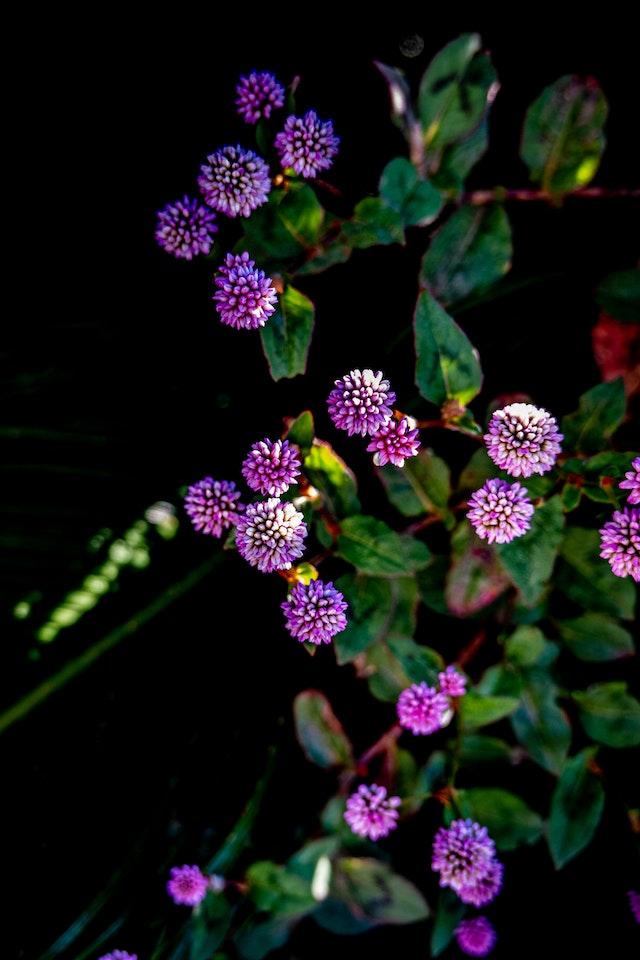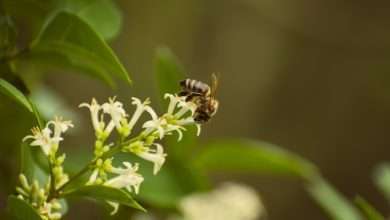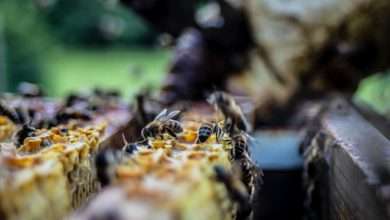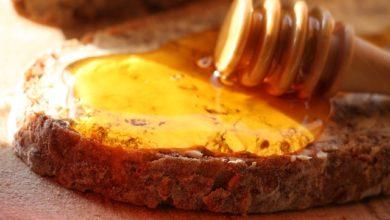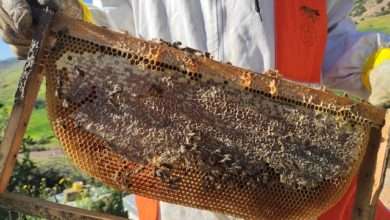What is Knotweed Honey?
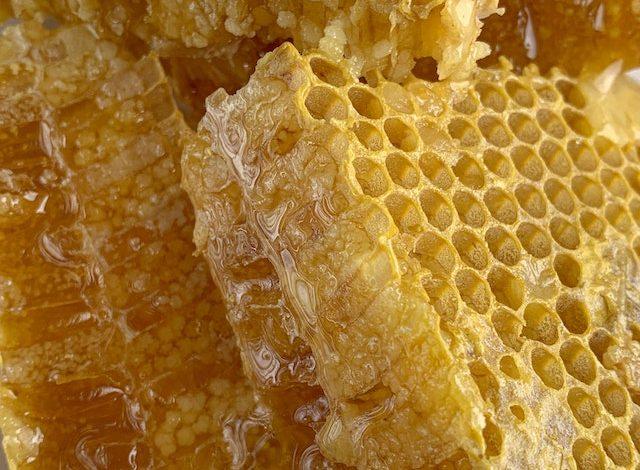
Have you ever heard of knotweed honey?
Japanese knotweed is an invasive species that can damage your foundation, rip up your driveway, and clog rivers and streams.
Fallopian japonica, formerly known as Polygonum cuspidatum, is an herbaceous perennial of the Polygonaceae buckwheat family.
Because of its hollow stems and raised stem nodes many people think it is some kind of bamboo. However, there is no relation between Japanese knotweed to true bamboo, which is actually grass.
Japanese knotweed is listed among the top 100 worst invasive plants by the World Conservation Union. However, it is actually a pretty plant with large spade-shaped leaves and showy cream-colored flowers if you can look past its invasive detail. A dense, bush-like display of the plant may reach a height of five to eight feet.
Japanese knotweed is no different from honey in that it is nutrient-rich. In its native Japan, Japanese knotweed honey has been extremely popular for generations. More recently this honey has been used all around the globe. Japanese knotweed honey features exceptionally high antioxidant content and it has a dark rich color.
Raw honey should actually build up your immunity, unlike refined sugar which attacks your immune system. Additionally, to name a few this honey is also rich in vitamins B1, B3, and B6.
Over the years, honey has been used as medicinal support, by smearing over wounds to keep the sterile due to its antibacterial qualities. Besides, because of honey’s antibacterial qualities, it is known to help in alleviating allergies and killing bacteria.
Many beekeepers are successful in gathering monofloral honey from the numerous stands in the area. A colony’s winter pantry gets a big late-summer boost if you do not harvest it.
Many people who have used knotweed honey compare it to a mild form of buckwheat honey because of its dark and flavorful nature. You can often find knotweed honey sold as “bamboo honey”, especially on the east coast and it is good and definitely worth a try.
Another use for Japanese knotweed has been found by bee lovers. The hollow stems are frequently chopped into lengths and bunched to serve as a habitat for local bees. Mason bees and leafcutter bees are just two examples of the many tunnel-nesting bees that can find acceptable habitats amid the little variations in stem diameter.
Japanese Knotweed Health Benefits
In fact, it is not surprising that Japanese knotweed honey would be so incredible for health when you look at its nutritional benefits.
Anti-oxidant, anti-inflammatory, anti-viral, anti-bacterial, probiotic, cardio-protective and many more are among the health benefits of Japanese knotweed honey.
• The probiotic properties of this honey will be essential in breaking down fructose within the honey itself hence slowing down the sugar absorption in your body.
• It is an excellent natural defense honey thanks to the plant polyphenols from Japanese knotweed flowers which help it defend itself against invading insects.
• Oxidation is one of the causes of pain in your body. Knotweed honey is good for you since just like red wine, it is high in anti-oxidant Resveratrol.
• Japanese knotweed honey is an excellent food source. Over the years, people across Asia including the Japanese have used it as a food source.
• In addition to the honey, it is completely safe and permissible to consume the fresh knotweed stems, which are reputed to taste a lot like British rhubarb. Stems have also been utilized as a vegetable side dish and in stir-fry meals.
It follows that if manuka honey has many of the therapeutic virtues of the Manuka tree, it stands to reason that some of the positive traits present in Japanese knotweed plants will also be present in Japanese knotweed honey.
Japanese Knotweed Flowers
Japanese knotweed offers an abundant spray of pretty creamy clustered flowers when in bloom. The Victorian botanist who introduced it to Britain was initially drawn to this lovely floral display. He was unaware of the lasting legacy he was leaving behind.
FAQs:
When Does Japanese Knotweed Flower?
Japanese knotweed blooms in late August or early September, giving bees and other pollinators plenty of autumnal food as they start to withdraw for hibernation.
Is Knotweed Honey Good for You?
It is not surprising that Japanese knotweed honey would be so incredible for health when you look at its nutritional benefits. Anti-oxidant, anti-inflammatory, anti-viral, anti-bacterial, probiotic, cardio-protective and many more are among the health benefits of Japanese knotweed honey.
Where Does Knotweed Honey Come From?
The Japanese knotweed plant, an invasive species currently found in more than 38 states, produces knotweed honey.
Japanese knotweed honey, also known as bamboo honey, is a dark honey with a delightful sweetness, similar to buckwheat honey that is a little mellower.
In addition, because they bloom at a time of year when few other flowers are blooming, Japanese knotweed blossoms are prized by certain beekeepers as a significant source of nectar for honey bees.
What Does Knotweed Honey Taste Like?
Japanese knotweed, an invasive species that may be found in 39 of the 50 states, is the source of knotweed honey.
Japanese knotweed honey, also known as bamboo honey, is a dark honey with a delightful sweetness, similar to buckwheat honey that is a little mellower. Some beekeepers consider the blossoms of Japanese knotweed to be a valuable source of nectar for honey bees.
Is Japanese Knotweed Good for Anything?
To create medicine, the entire blooming plant is employed. Bronchitis, cough, gingivitis, sore mouth, and throat are all treated with knotweed. Additionally, it is utilized for fluid retention, skin conditions, and lung problems. Some people use it to control bleeding and lessen the sweating brought on by tuberculosis.
Does Knotweed Help You Lose Weight?
The plant demonstrates antioxidant, cancer-fighting, anti-inflammatory, anti-tumor, nerve-protecting, and many other qualities. Additionally, it might aid in managing diabetes and preventing weight gain.
Does Japanese Knotweed Raise Estrogen?
Theoretically, in essays based on binding to the human estrogen receptor, Japanese knotweed components may compete with a tagged estrogen for binding to the estrogen receptor and increase the resultant “estrogen” level.
Is Japanese knotweed poisonous to humans?
No, Japanese knotweed does not have a toxic or burning substance. Some people confuse the name with toxic common ragwort or giant hogweed, both of which can burn you. These two are likewise invasive non-native weeds.
